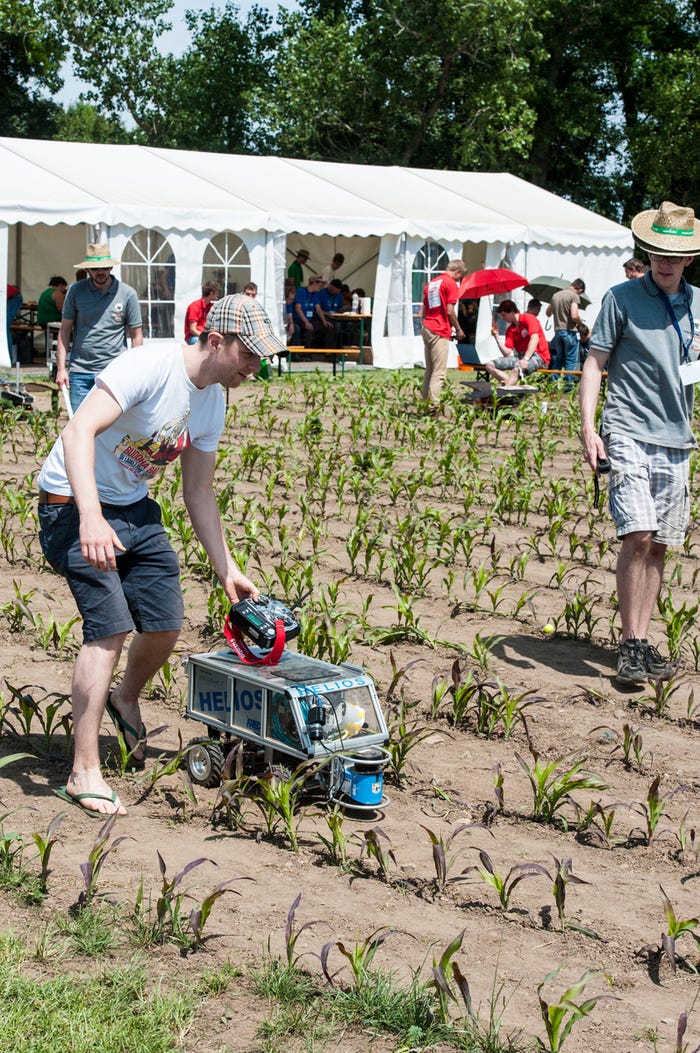July 7, 2014

Twenty-three teams from 10 countries recently competed at the International Field Robot event held during the DLG Field Days. This international competition brings international student teams and their autonomous field robots to Bernburg-Strenzfeld, Germany, to compete in five assigned tasks.
Started in 2003 by the University of Wageningen in the Netherlands, the goal of the competition is to test new technologies in robotics and precision farming under real-world conditions.
It was a fun several days of competition, and it was amazing to see the ingenuity of the students not only in the design of their robots, but in the way they handled adversity and hiccups during the event. A full list of the winners is available here.
The goal of the competition is to test pioneering technologies in robotics and precision farming under real conditions on the field. It also gives young scientists the opportunity to participate on the European stage and inspire the development of ideas.
As in previous events, the field tasks focused on row crops with corn as the main crop. Each robot had to complete five tasks in order to assess their capabilities in sensing, navigation and actuation, as follows:
Basic and advanced navigation (Task 1 & 2): To ascertain whether the robots can skilfully and effectively navigate between rows, an important requisite especially in field crops like maize.
Agricultural applications (Task 3): Introduced this year, the robots will have to detect weeds and create weed maps using positional information.
Cooperative abilities (Task 4): Teams will demonstrate how their robots can work together.
Freestyle operation (Task 5): As its name suggests, this task is all about creativity. Robots will be tasked to perform a freestyle, applications-oriented operation.
While the ‘top robot’ was selected based on performance over several routine field tasks, all students and budding engineers got equal opportunity to mingle, network and meet like-minded counterparts in Europe. As the use of robots in agriculture reduces labour inputs and the potential for human error, robotics engineering is a new field that is set to take off in a big way in precision agriculture.
Like what you’re reading? Subscribe to Farm Industry News Now e-newsletter to get the latest news and more straight to your inbox twice weekly.
About the Author(s)
You May Also Like






